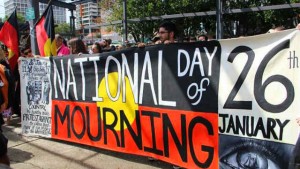Home » Commentary » Opinion » Moving Australia Day won’t stop protestors
· Ideas@TheCentre
 Predictably, Australia Day saw protest marches held around the country with people proclaiming ‘Invasion Day’ was nothing to celebrate.
Predictably, Australia Day saw protest marches held around the country with people proclaiming ‘Invasion Day’ was nothing to celebrate.
Every year it is the same scenario. So much so, that these protest marches are as much a part of the national day as backyard BBQs and having a beer.
This year the focus was on moving the date of Australia Day. Warren Mundine suggesting moving it to January 1 — when the six British colonies united as a single nation under the Australian Constitution. While there is some merit to his argument, I doubt changing the date will make a difference to those hell-bent on protesting.
As Jacinta Price so eloquently put it in a Facebook post that went viral: “I’m pretty sure if we are pressured enough to change the date then there will be something else for the Aboriginal middle class activists and guilt ridden white fellas to be offended about.”
In New Zealand, where there is an official policy of biculturalism, there are still protests every year on Waitangi Day; a public holiday on February 6 to celebrate the signing of the Treaty of Waitangi.
This should be a lesson for Australia — it does not matter what you do, you cannot please everyone.
The irony, for those opposed to Australia Day, is that the day provides them with an opportunity to raise awareness about some of the problems faced by Indigenous Australians, such as the shockingly high rates of domestic violence, as Josephine Cashman and Marcia Langton did at Yabun this year.
People are perfectly justified in viewing Australia Day as a day to reflect and remember what has happened to Aboriginal people since Australia was first settled, and we should not whitewash history.
At the same time, as Price pointed out, the future — and how all Australians relate to one another today — is much more important than dwelling on the past.
Moving Australia Day won’t stop protestors